Abstract
Present methods of controlling meningococcal cerebrospinal meningitis have failed to contain the disease. This has led to the search for effective vaccines and to the development of methods for assaying the potency of these vaccines, as well as for measuring the immune response of the individual. The feasibility of using the sero-protection test in embryonated eggs for the assay of meningococcal antibody has been investigated. The paper describes detailed investigations of the infectious process established by injecting Neisseria meningitidis by various challenge routes. Embryos, even 10-12 days old, showed high susceptibility to meningococci injected via the yolksac or chorioallantoic vein, and lesser susceptibility when injected via the intra-allantoic and chorioallantoic routes. The deaths of intravenously inoculated embryos coincided with the multiplication of the organisms and ensuing septicaemia. A study of the infection in embryos which had died, or were killed, 18-24 hours after inoculation showed a specific localization of the organisms in the brain.
Full text
PDF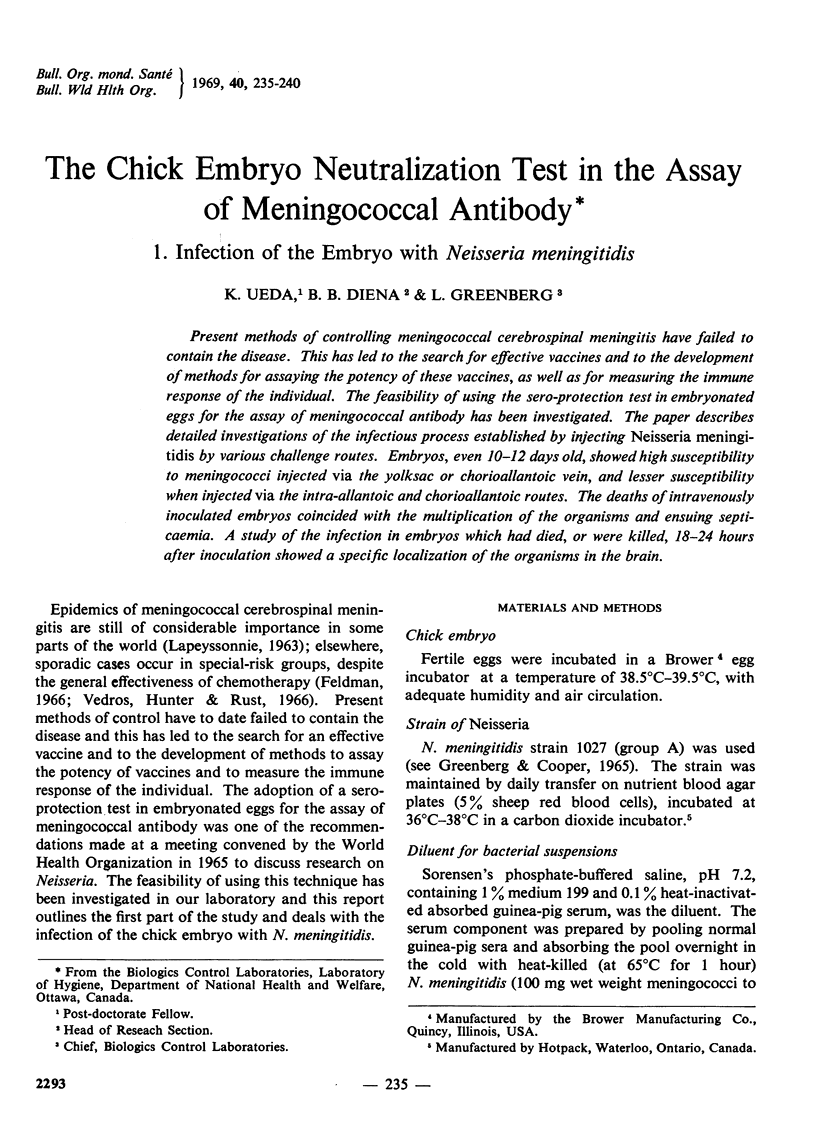
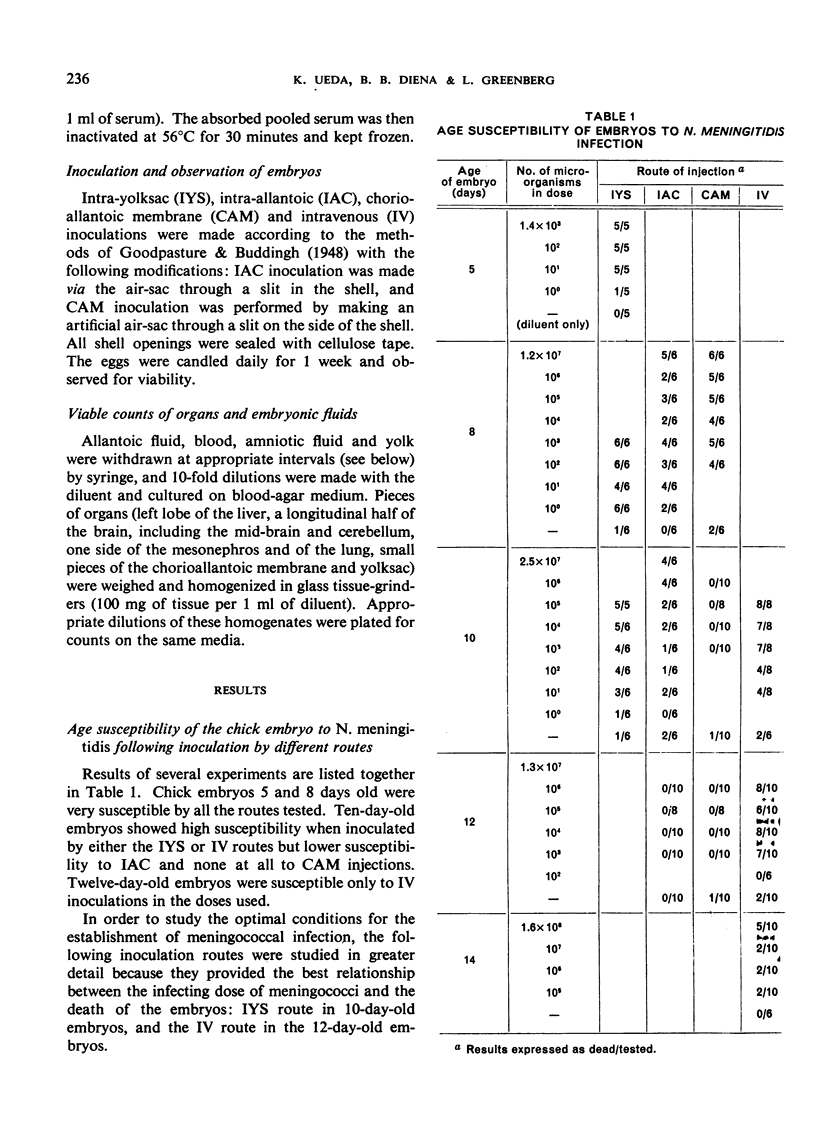
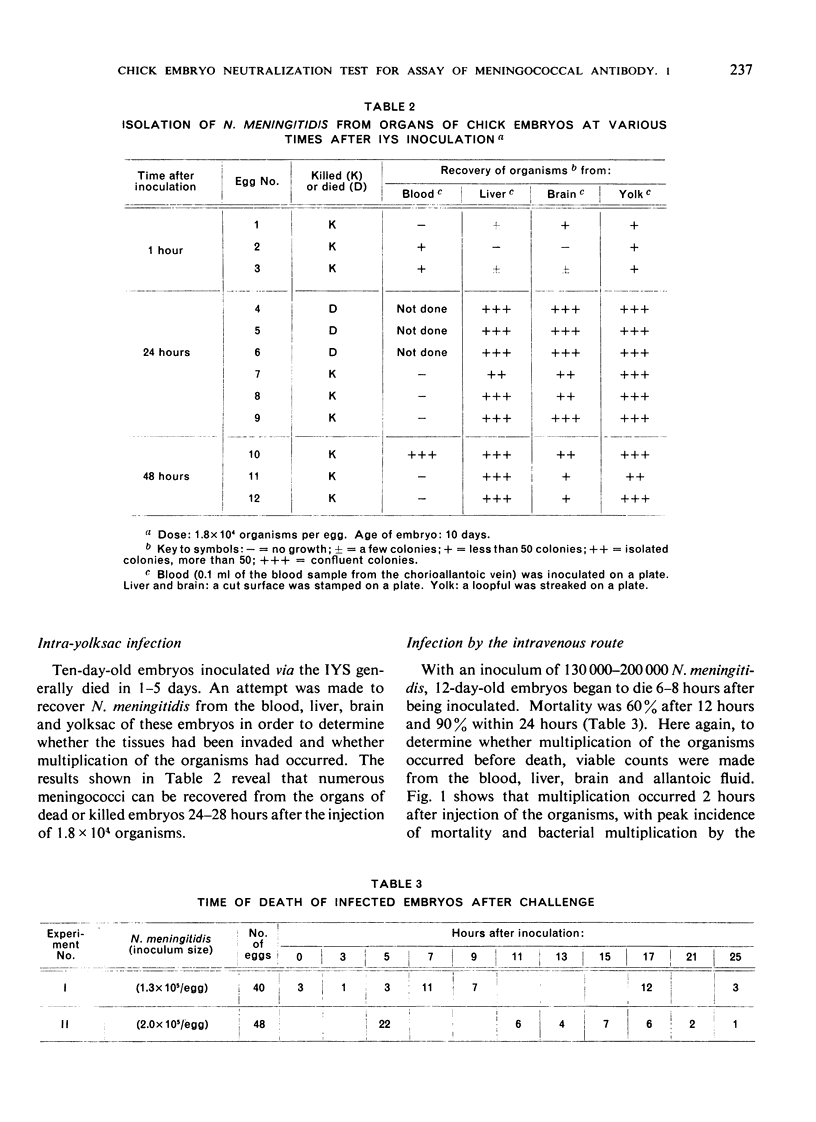
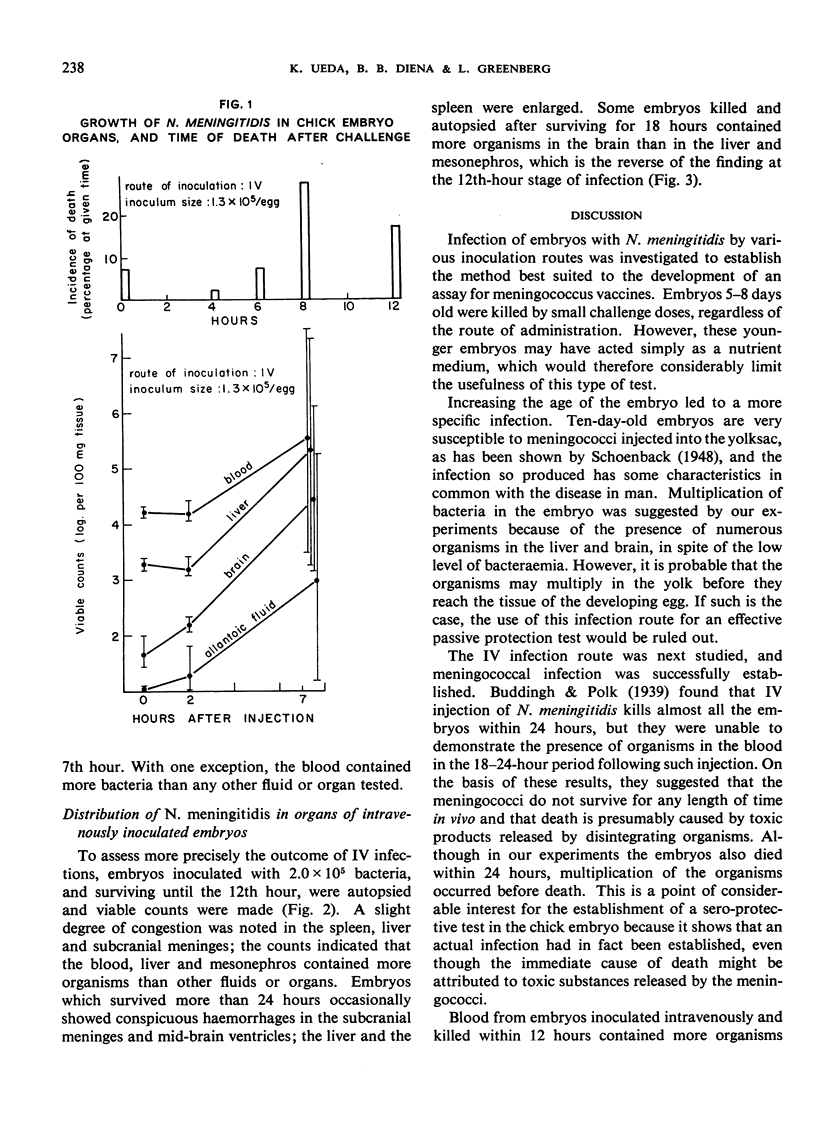
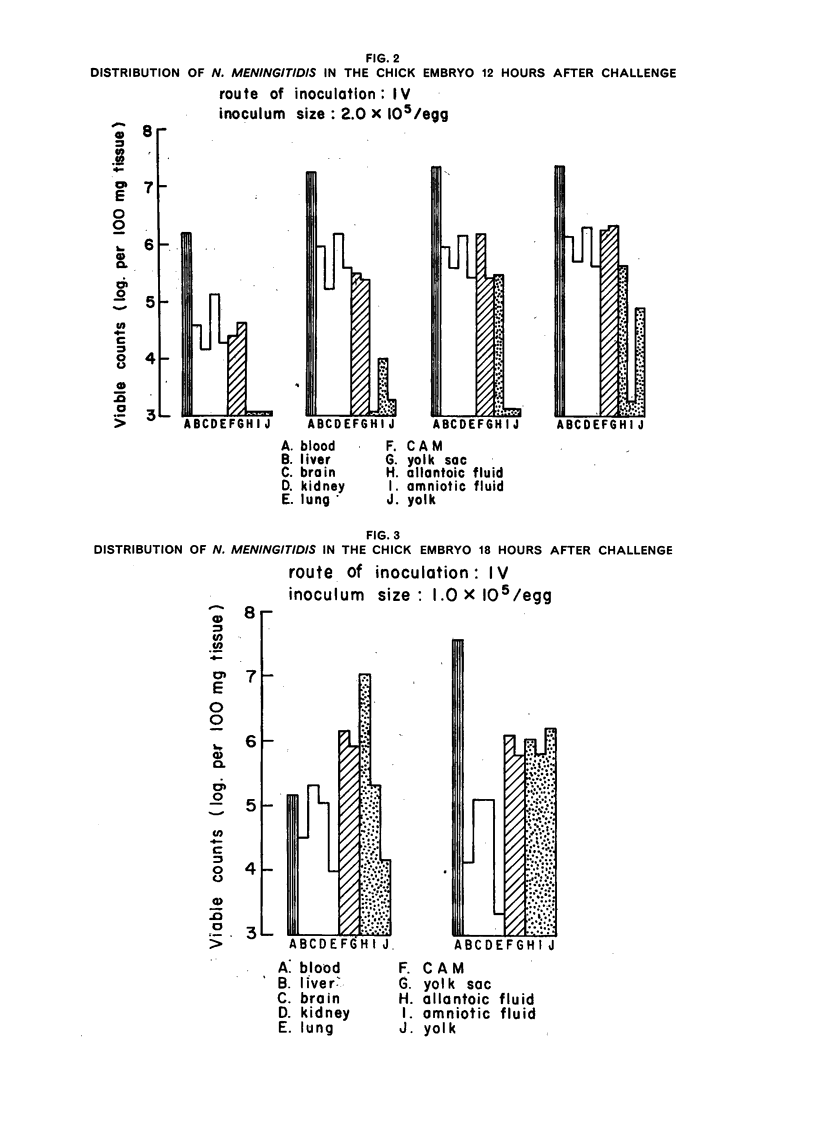
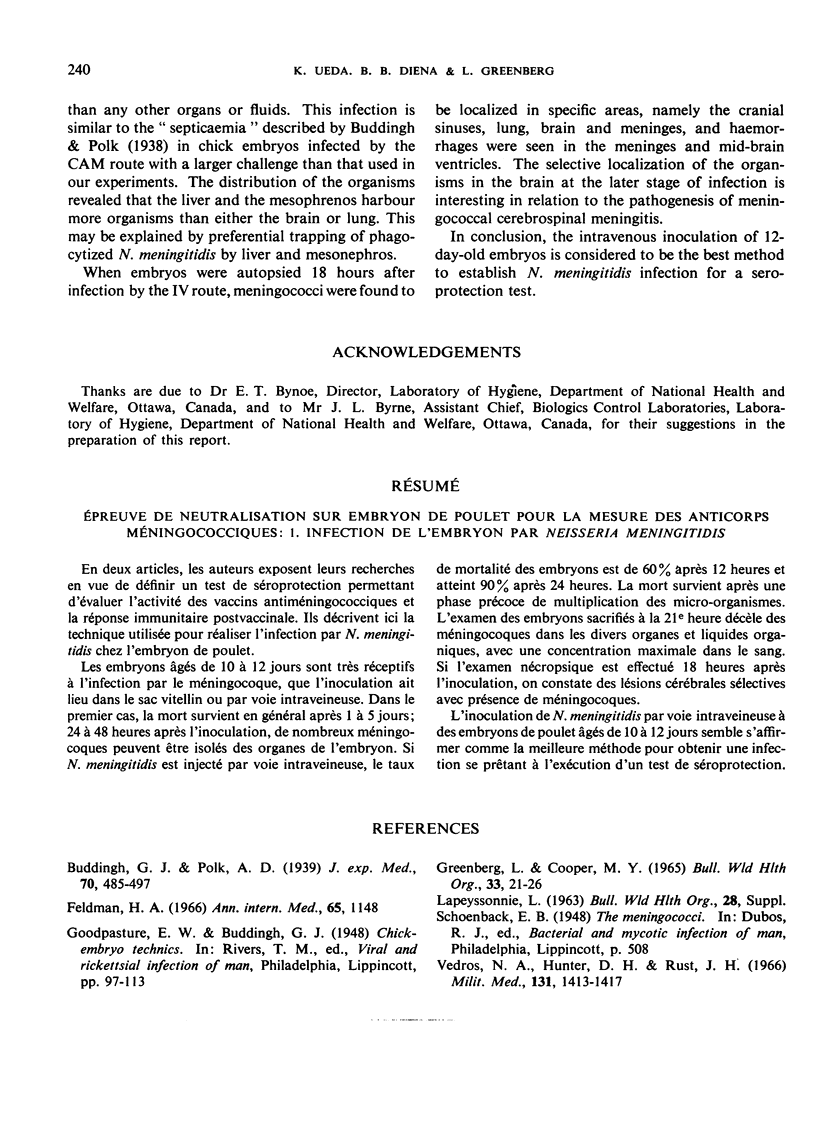
Selected References
These references are in PubMed. This may not be the complete list of references from this article.
- Buddingh G. J., Polk A. D. EXPERIMENTAL MENINGOCOCCUS INFECTION OF THE CHICK EMBRYO. J Exp Med. 1939 Oct 31;70(5):485–498. doi: 10.1084/jem.70.5.485. [DOI] [PMC free article] [PubMed] [Google Scholar]
- Feldman H. A. Meningococcal infections--the military and the civilians. Ann Intern Med. 1966 Nov;65(5):1148–1148. doi: 10.7326/0003-4819-65-5-1148. [DOI] [PubMed] [Google Scholar]
- Greenberg L., Cooper M. Y. A somatic antigen vaccine for the prevention of meningococcal cerebrospinal meningitis. Bull World Health Organ. 1965;33(1):21–26. [PMC free article] [PubMed] [Google Scholar]
- Vedros N. A., Hunter D. H., Rust J. H., Jr Studies on immunity in meningococal meningitis. Mil Med. 1966 Nov;131(11):1413–1417. [PubMed] [Google Scholar]


